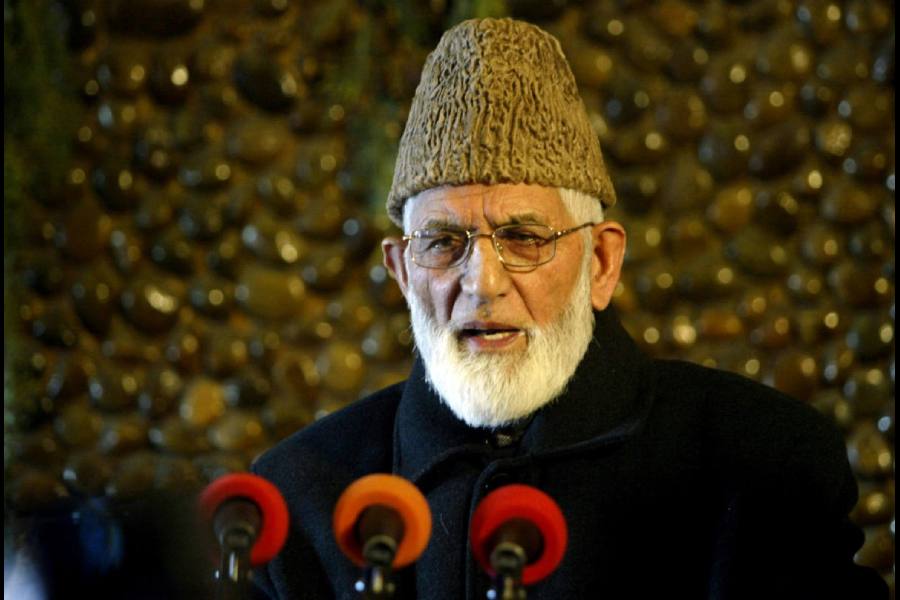The Centre on Sunday banned the pro-Pakistan separatist group Tehreek-e-Hurriyat (TeH), years after the death of the separatist stalwarts who had founded the group — Syed Ali Shah Geelani and Mohammad Ashraf Sehrai.
The ban suggests a new low for the political separatist movement in Kashmir, although militancy remains a challenge for the government.
“The Tehreek-e-Hurriyat, J&K (TeH) has been declared an 'Unlawful Association' under UAPA. The outfit is involved in forbidden activities to separate J&K from India and establish Islamic rule. The group is found spreading anti-India propaganda and continuing terror activities to fuel secessionism in J&K,” Union home minister Amit Shah wrote on X.
“Under PM@narendramodi Ji’s zero-tolerance policy against terrorism, any individual or organisation found involved in anti-India activities will be thwarted forthwith,” he added.
TeH is one of the last major separatist groups to have been declared unlawful by the Centre — a process started in March 2019, months ahead of the scrapping of special status.
The government had started with banning the Jammu and Kashmir Liberation Front and Jamat-e-Islami in 2019. The process picked up pace in recent months with the government banning Shabir Shah-led Democratic Freedom Party and Masarrat Alam-led Muslim League in October and December, respectively.
Both Shah and Alam are separatist veterans who have been languishing in jail for years. Alam also heads the hardline Hurriyat Conference faction.
Both moderate and hardline Hurriyat factions, along with some smaller groups, have not been banned so far.
The Centre has followed a zero-tolerance policy for all kinds of separatist activities after 2019. Many leaders have been jailed while others are lying low.
A separatist leader said the Tehreek-e-Hurriyat existed largely in name after the 2019 scrapping of special status and the subsequent death of its co-founders Geelani and Sehrai.
The two, known as hardliners, had co-founded the group in 2004 as a political organisation following differences with Jamaat-e-Islami, their parent body. They had continued their association with Jamat.
Geelani stepped down as the group's chairman in 2018 to pave the way for Sehrai. However, Sehrai died in 2021 in jail, apparenty because of a Covid-related ailment.
Geelani passed away in 2022, while under house arrest, after prolonged illness.
The government had disallowed their public funerals, forcing families to bury them quietly in the dead of the night.
In Sehrai’s case, his two sons were booked under the anti-terror Unlawful Activities (Prevention) Act (UAPA) for allegedly raising pro-Azaadi slogans during the funeral of their father.
Apart from Geelani and Sehrai, some other veteran leaders of the group such as Molvi Abbas Ansari, Altaf Ahmad Shah, Sheikh Tajamul Islam and Nazir Ahmed Shawl also passed away between 2019 and 2023.
Shawl, 77, a former professor, died in London this week. Shah, 66, who was Geelani’s son-in-law, died in jail in 2022 because of cancer.
Shah’s family had accused the administration of denying him medical aid.










